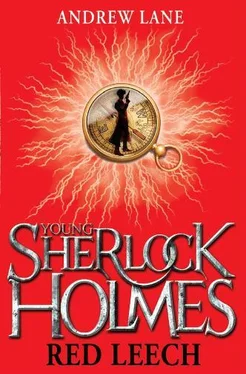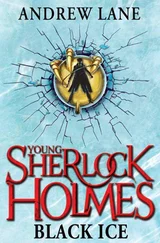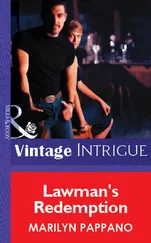“I recall one occasion,” Judkins said in a low, deep voice, “when a broken cable was dredged up from the abyssal depths of the ocean, and there was a creature holding on to it !" He glanced around the table, his eyes bright beneath bushy brows, while the various passengers who were hanging on his every word gasped. “A godless creature like a marine earwig, if you would credit it; white in colour, but fully two feet long and with a set of fourteen clawed legs that gripped hard on to the cable and would not let go. It was still alive when they dragged the cable on to the deck, but it soon died, being removed from its natural habitat amongst the murk of the ocean floor.”
One woman let out an inadvertent shriek.
“I understand from the men who were there,” Judkins continued, “that the creature tasted something like lobster, when cooked.”
His audience dissolved into relieved laughter. Sherlock caught Amyus Crowe’s eye. Crowe was smiling too.
“I’ve heard similar stories,” Crowe murmured, just loud enough for Sherlock to hear. “The things are called “isopods”. They’re something like prawns, but the conditions at the bottom of the ocean allow them to grow to prodigious size.”
The steward who was serving Sherlock’s part of the table — up near the Captain, as Mycroft had promised, was the thin man with a blond crew cut who had helped Sherlock with directions earlier. He nodded at Sherlock as he reached out to place a dish of soup in front of the man sitting opposite.
There was no lobster, which was probably a blessing.
After dinner Sherlock had headed for bed, leaving Amyus Crowe in the bar, and if Crowe had come to bed at all then Sherlock had been asleep in his bunk when he had done so. When Sherlock woke up and got ready for breakfast, Crowe had already left the cabin. He seemed to be able to survive on small amounts of sleep.
Despite the fact that it was being cooked at sea, in a cramped galley, the food was excellent. Each meal had something different in it, and waiting to see what would arrive on the plate at breakfast, lunch or dinner was one of the highlights of the day. Everything was prepared from fresh, of course — it would be difficult to store anything for very long — but even though the numbers of animals on the foredeck would diminish during the voyage there was no obvious sign of them being slaughtered — no washes of blood across the deck, no piteous bleats as the animals were taken away to their final end. The crew obviously had their own routine, which they had been following for years.
The skies on that first day were clear and blue, and the waves were small enough in comparison to the size of the ship that they just slapped across its sides without making it pitch and toss at all. Sherlock had read stories about storms at sea, and he overheard a couple of the passengers who were scaring the rest by telling stories of horrendous previous passages across the Atlantic where vast waves had hung above the ship before crashing down and sweeping the animals overboard, but so far the ocean had been calm enough that some people were actually playing bowls in a clear area of deck.
The steerage passengers had their own fenced-off area of deck for walking and for washing their clothes. It was at the top of the stairs that led down to the dark areas of the ship where their hammocks were slung. The smell that wafted up sometimes was an eye-watering mix of bodily odours. Presumably, down there where there was no breeze and nobody could see the sky and the horizon, seasickness was a constant companion. When they came on deck they either watched the First Class passengers with subdued malice in their eyes or stared at the deck in weary depression. Every time Sherlock passed them by he thanked God that Mycroft had paid for them to travel First Class. He wasn’t sure he could have survived steerage. He wasn’t sure how anyone could.
The massive paddle wheels on each side of the ship were in constant motion, driven by the steam engines whose rumbling could be felt whenever one touched a wooden surface. The paddles which were spaced around their circumference pushed against the sea as they rotated, propelling the ship forward. The captain had ordered the sails to be unfurled shortly after Southampton dropped out of sight over the horizon, but the way they hung limply suggested to Sherlock that there wasn’t enough breeze to keep the ship moving very fast.
Surprisingly, for much of that first day after breakfast he hadn’t seen much of Amyus and Virginia Crowe. She had seemed subdued, and had taken to her cabin, and her father seemed to be spending his time alternately checking that she was all right and brooding in the cabin which he shared with Sherlock. Something was bothering her. Casting his mind back, Sherlock tried to remember whether Virginia had mentioned anything about the trip from America to England that she and her father had taken apart from the fact that they hadn’t travelled First Class but weren’t in steerage either. He had a feeling that she had said something important when they first met, but he couldn’t remember what.
Somewhere towards the back of the ship Sherlock could hear music playing. He turned from his position staring out at the waves, trying to trace its source. The music floated overhead, as light as the seagulls which followed in the wake of the ship and hung in the air, barely moving their wings. It sounded like a violin playing a melody that swept up before pausing at the topmost note and then crashing down again.
Leaving his place at the rail, Sherlock walked back towards the stern, looking for the source of the music. There was precious little entertainment on the ship as it was: anything that broke up the monotony of the day should be investigated and treasured.
Past the long single storey of the saloon, in a clear area of deck, a man stood playing the violin. It was the man he had seen the day before, when they had been leaving Southampton — the man with long black hair and green eyes. He was still wearing the same corduroy jacket and trousers, although he appeared to have changed his shirt. The violin was pressed into his neck and his head was tilted, chin holding the body of the instrument steady while his left hand fingered the neck and his right hand sawed the horsehair bow across the strings. His eyes were closed and his face bore an expression of intense concentration. Sherlock had never heard a piece of music like that before: it was wild, romantic and turbulent, not ordered and mathematical, like the pieces by Bach and Mozart that he was used to hearing in the occasional recitals at Deepdene School for Boys.
Several other passengers were gathered around the man, listening to him with quizzical smiles on their faces. Sherlock watched, and listened, as he swept to a climax, held the note, and then stopped. For a moment he kept the violin up to his chin, eyes still closed and a smile on his face, then he let it fall and opened his eyes. The crowd applauded. He bowed. His violin case was on the deck in front of him, Sherlock noticed, and some of the passengers threw some coins in before they wandered away.
After a few moments, only the violinist and Sherlock were left. The violinist bent to scoop the coins from the case, then glanced up at Sherlock.
“Did you enjoy that, my friend?”
“I did. If I had some money I’d give it to you.”
“No need.” He straightened, having left the violin and bow in the case. “The money supplements my fare, and offsets my expenses, and allows me a little extra for the occasional drink, but I’m not trying to make a living by playing. Not here on the ship, anyway. I do, however, have to practise, and my room-mate does not appear appreciative of anything apart from German polkas.”
“What was that piece?” Sherlock asked.
Читать дальше












